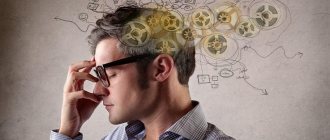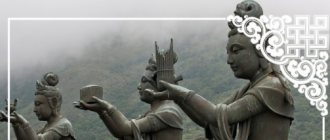Whoever has once found himself cannot lose anything in this world. And whoever once understood the person in himself understands all people
S. Zweig
Self-knowledge begins from the moment you become aware of yourself. This process is embodied very early, even in childhood, and reaches its peak in the years of adolescence, when the thirst for knowledge is great, the mind is insatiable, demands new discoveries and impressions, and the soul strives for high goals and it seems that it is possible to embrace the immensity.
All this is exactly so, but with the burden of responsibility that social status imposes, new responsibilities, and simply the daily whirlpool of events carries away with its speed, a person forgets about the purity of impulses that once filled his life with meaning. And now, realizing the vanity of existence, he looks back, sees himself in the past and realizes that something is missing in his present life. Is this why she began to seem ordinary to him, so predictable?
Yes, there is stability in it: he has achieved recognition of his merits, he is valued by colleagues and respected by friends, there is stability in the family and support in life. However, this vague feeling inside does not cease to excite us and the fact that all this surroundings, the external component of being, does not exhaust the diversity that life can offer us.
No matter how unique and beautiful the experience of living in society may be, constantly encouraging us to serve our egregor, nevertheless, the material component of life could not exist if there were no inner life, the one that happens inside, is manifested by the work of consciousness and mind. It is the most important thing in a person, what is hidden from view, but from where we draw strength to implement projects; she is a source of inspiration and creativity; the place where consciousness and soul live; a reflection of all that is purest in every person.
In moments of misunderstanding by others, it is this source that you will turn to in order to regain self-confidence. This is the inner pulse that connects us with the Absolute. It contains the entrance to the countless kingdom of knowledge and virtues. You need to be able to use it, find the key to it. The inner world of a person is huge. What we habitually call the inner world are just approaches to it. To recognize the entire Universe hidden behind the inscription “inner world,” we resort to a technique called self-knowledge.
Self-knowledge
The process of knowing yourself is called self-knowledge. It is formed throughout life, transforming depending on circumstances. A person’s self-knowledge is influenced by various factors, such as a person’s social status, his social roles, character and temperament, creative and physical abilities, and much more.
Personality formation occurs throughout life. A person is born, begins to explore the outside world and comes to realize himself as a separate person. In infancy, the child becomes aware of and accepts himself through his mother. Subsequently, he begins to understand that he is a separate person from her, begins to learn to accept and study himself, his body, behavior, and the reaction of others to him.
Psychologists argue that the influence of various factors on the process of self-knowledge is irreversible. Therefore, the more positive examples a child sees in childhood, the more thorough the process of self-knowledge will take place in his life.
Psychological dependence on various circumstances may also be associated with some difficulties in childhood.
With the process of personality formation, a person begins to understand what surrounds him, what reality he is in, how society influences him and how he himself influences social processes.
Self-knowledge and personality development
In order for a person to realize himself in life, it is very important to realize his purpose and place. Personal self-knowledge provides a person with potential success. His self-realization and future activities depend on how deeply he knows himself.
People who cannot find their place in life are usually very critical, distrustful and picky. In order to learn to look at the world realistically, you must first learn to see yourself. To achieve maximum opportunities in his life, a person must know himself.
Self-knowledge and self-development are inextricably linked. As a person develops, he comes to know himself. By getting to know oneself, a person develops. These two factors always go hand in hand. It is impossible to develop without knowing your preferences, capabilities, and talents. Self-knowledge of a person forms a certain range of interests and possible areas of human activity.
Many people already know in childhood what they want to become when they grow up. This process of self-discovery is not available to everyone. Scientists still cannot answer the question of why some children are confident in their future, while others are not. Perhaps the parents' potential and their positive attitude play a role. The process of self-knowledge greatly depends on the upbringing of a child.
Some psychologists argue that the process of self-knowledge is shaped by a person's ability to develop as a person. A number of factors influencing this process determine the success of personality development; by recognizing one’s inner world, temperament, becoming familiar with one’s distinctive features and capabilities, a person begins to accept himself as he is. This has a big role in the process of self-realization.
Depending on the type and way of thinking, a person receives a certain number of qualities that he will possess in life. Self-development will also depend on this. In addition, self-confidence plays a big role here. A complex person will be less in demand in society, despite his skills and talents. He will not be able to express himself the way he himself would like. Therefore, the processes of self-realization and self-knowledge are also interconnected.
Self-knowledge and self-development are not only interconnected, they complement each other. Development and progress are impossible if you are not aware of your belonging, distinctive features and qualities. A person develops by learning new things about himself, thereby using his new qualities to his advantage. In the process of self-discovery, people begin to realize their importance, thereby receiving more opportunities for development. A person who develops, grows above himself, becomes wiser, more experienced and more in demand in any field.
Common Mistakes
In developing self-awareness, a person makes the following mistakes:
- Labeling. They oversimplify reality and interfere with adequate thinking.
- Deafness to feedback. Often other people are better able to see positive and negative qualities. You need to be able to analyze yourself, but take what other people have said as initial information.
Thus, self-awareness is the most important characteristic of a person, distinguishing him from animals. Self-knowledge is a process that allows you to understand what a person is like. It mediates development and helps to correctly analyze psychological experience for further search for ways of self-development.
Types of self-knowledge
The formation of personality undergoes changes throughout a person’s life. There are several types of self-knowledge that play a huge role in interpersonal and intrapersonal interaction. Types of self-knowledge differ depending on personal processes. The order of these processes is determined by various factors: analysis of one’s own self, acceptance of oneself as an individual, assessment of one’s capabilities and abilities.
Knowing some basics of his behavior and the behavior of others, it will be easier for a person to develop, since he will understand many behavioral points. There are a number of ways to help you engage in self-knowledge consciously.
- Introspection. A person deliberately fixes his view on behavior, observes his own reactions to various events, tracks his views and their dependence on various factors. As a result of analyzing one’s own personality, a person receives a holistic view of the world and compares it with his own feelings.
- Introspection. This process is closely related to self-observation. After analyzing some points, you can really assess your capabilities and behavioral reactions that arise in the processes of reaction to various factors.
- Comparing yourself with other people. By comparing your own behavior and the behavior of people around you, you can soberly assess many situations and work to correct your own mistakes. This process will definitely be the result of successful cooperation. After carefully studying your own reactions and the reactions of others, you can learn to interact successfully with them.
- Personality modeling. Using your own knowledge about personality, you can control and regulate many psychological reactions. Understanding the importance of self-control, a number of ideas about one’s own personality and the world around them are formed.
In the process of self-knowledge, a person begins to realize his essence, belonging and the meaning of his own existence. The result of self-knowledge is acceptance of oneself as an individual and the ability to find positive traits even in one’s shortcomings.
In addition to the fact that there are methods of self-knowledge, there are also means of self-knowledge with the help of which a person can more easily go through the path of self-recognition.
- Report to yourself. It consists of a written or oral daily report about the day passed, what was seen during the day, and one’s behavior. Even small moments must be recorded. Currently, blogs that are maintained on the Internet are very popular. They can record all the events that happened during the day. If a person does not want to flaunt his life, you can use a diary, which will record important events that happen in life.
- Psychological literature and cinema. There are a lot of useful documentaries about self-knowledge, as well as professional literature, with the help of which it will be easier to understand your worldview and accept yourself as an individual. By comparing yourself with movie characters or book characters, you can gain new knowledge about yourself.
- Psychological tests. They help people choose the direction of their talents, highlight their temperament and obvious character traits. With their help, you can understand your belonging to a particular profession or your inclination towards a particular activity. Many companies offer to take not only professional tests, but also tests to study self-realization and personal growth. It will be much easier for a trained person to deal with different situations by first studying similar works.
In addition, you can always turn to a psychologist who, using special methods, will help each person gain knowledge about himself, help set priorities and determine the functions of self-knowledge for each person. Psychological counseling is very developed in most European countries. In Russia, psychological counseling centers have also recently begun to develop extensively, where everyone can get answers to their questions, including advice on self-knowledge.
Trainings are conducted both individually and in groups. Depending on the wishes and capabilities of the person, you can choose the appropriate method for yourself. Not all people can cope with this issue on their own, so they often seek advice from a specialist. The right solution to a problem cannot always be found on your own, so there is nothing special about getting help from a specialist.
Story.
The philosophers of Antiquity were the first to see the beginning of philosophy in Self-Knowledge. According to legend, the commandment “know yourself” is the fruit of the joint conclusions of the seven great sages of Ancient Greece. This same problem became the core of Socrates' teaching. According to Socrates, constant turning inside one’s own “I” is a way to maintain a harmonious balance between soul and body. And the one who does not know himself is not able to conduct business, become happy, or make others happy.
Representatives of different philosophical schools developed different aspects of self-knowledge and interaction of the individual with the world. The medieval Father of the Church, St. Augustine, believed that immersion in oneself is necessary to search for traces of God, and not for individual traits of one’s personality. In general, in religious philosophy, self-knowledge was recognized as impossible without the practice of numerous religious teachings, ascetic asceticism, and the mystical experience of spiritual prayer.
The topic of self-knowledge was considered and discussed in the works of the founder of the Taoist tradition, Lao Tzu, Buddhist sages, Confucian and Arab philosophers. But representatives of Western and Eastern philosophical schools approached the study of the issue from different points of view. From the perspective of both traditions, the “I” knows itself as if from the outside, going beyond its own limits. But the East views a person as a part of the world, and the West associates self-knowledge with the autonomy of the “I” from the environment.
The representative of Western applied philosophy of modern times, Rene Descartes, considered the problem of self-knowledge as a task that can be scientifically posed and solved. The English philosopher-theorist J. Locke interpreted self-understanding as observation of one's own experience. But no philosophical school paid such attention to the issue of self-knowledge as German classical philosophy. The most cited and respected works are those of Kant, Fichte, Hegel, and Schelling.
Despite its venerable age, the problem of self-knowledge is also relevant in modern philosophy. The Russian physiologist I.M. Sechenov considered the reflex activity of the brain to be the basis for all acts of cognition. The French psychologist Janet recognized the impossibility of knowing one’s “I” without social interaction. The founder of psychoanalysis, S. Freud, paid more attention to the issue of knowledge of the unconscious.
In the 50s of the 20th century, A. Maslow and K. Rogers formulated the self-concept of personality, which in the 80-90s became the basis for psychological science. The focus of self-knowledge gradually shifted from issues of consciousness to managing one’s own behavior, understanding and predicting one’s own life.
In the XX-XXI centuries, two interrelated sciences that study self-knowledge have become relevant: psychology and philosophy. And man’s awareness of his existence is recognized as a component of his existence and development.
Primary self-knowledge
The process of self-discovery begins in infancy. Throughout life, it changes and takes on more and more defined forms. Primary self-knowledge begins to develop in early childhood. Trust in the world and in oneself depends on it.
The very first stage in self-knowledge is primary. The child forms an idea of himself and other people, begins to explore the world, gets acquainted with the reactions of people and with his own. The process of self-knowledge is embedded in the brain. From birth, a person begins to learn to accept himself as he is.
Thanks to properly organized help from parents, the process of primary self-knowledge will be easier. Due to the great influence of parents on their child, part of his ideas about himself and the world around him will be inextricably linked with the parents’ idea of him. As a result of praise or, conversely, conflicts emerging in the family, the child begins to know himself and learns to accept the world.
Despite the fact that primary self-knowledge begins at an early age, the crisis of this stage occurs in more mature years. When encountering any obstacles along the way, a discrepancy with one’s expectations, the changed world begins to seem different from what it was in early childhood. Teenagers often tend to idealize the surrounding reality, however, at some point a crisis occurs. This is called a crisis of primary self-knowledge, when one’s own ideas began to undergo some changes that must be come to terms with.
Conflict with primary self-knowledge
As a result of understanding themselves and the surrounding reality, people usually identify certain factors that subsequently have a great influence on their lives. For example, the attitude of other people towards him is usually of great importance for an individual. The general impression of oneself is formed, among other things, through the views of others on one’s personality.
Methods of self-knowledge involve studying one’s own “I” through the eyes of others. Possessing certain information from other people, a person receives a lot of useful information about his personality, and also forms his own opinion about the reality around him.
A person does not always hear and see what he would like. Therefore, a conflict with primary self-knowledge often arises at this post. People tend to note only positive qualities in themselves, forgetting about some negative aspects.
Definition of the concept
Self-knowledge in philosophy – what is it? For the first time, the problem of the need to study one’s personal characteristics was raised by Plato in the dialogue “Protagoras” with a number of other philosophers of Ancient Greece: Thales, Pittacus, Biant. Then they came together and defined self-knowledge as the germ of wisdom.
Later, this process was identified as a driving force for personal growth by Carl Rogers, one of the representatives of the direction of humanistic psychology. Without it, he argued, it is impossible to feel the fullness of life and realize its meaning.
Personal self-knowledge in philosophy is a more general category than in psychology. This is a full-fledged scientific method. The peculiarities of self-knowledge in this scientific discipline are that most scientists look for answers to the basic questions of the universe within themselves and advise everyone to do so.
Self-knowledge is an important part of self-awareness - a person’s ability to understand himself, his actions and needs, thoughts, feelings, reasons for behavior, strengths and weaknesses. This is a mental phenomenon that allows a person to define himself as a subject of his own activity. As a result, all ideas of the personality are combined into the “Image-I”.
Self-knowledge - studying the characteristics of one’s own personality
Man is not born aware of himself. In infancy, self-knowledge manifests itself only in the form of inclinations, when the baby notices that certain events occur as a result of his actions (threw a toy - it flew). Self-esteem and awareness of personal qualities begin to form only in adolescence. Some people never develop an adequate ability to know themselves. As a result, they exhibit high or low self-esteem with a corresponding attitude towards other people and their activities.
Self-knowledge is aimed at the person himself, but does not lose sight of other people.
Secondary self-knowledge
The goal of self-knowledge is an in-depth study of one’s own characteristics and using them to one’s own advantage. As a result of the formation of personality, it undergoes some changes, thanks to many factors influencing a person’s life.
Over time, an individual may lose some of his qualities and acquire others. As a result of this process, a partial erasure of ideas about one’s own “I” begins. By undergoing these changes, a person becomes forced to accept the “new” self. After some time, self-acceptance begins through the eyes of others. Very often people see themselves differently from the way their friends and relatives see them. This is also part of self-knowledge. Accepting oneself from different positions plays a huge role in the process of personality development.
In the process of personality formation, there comes a moment when a person seems to know himself and his own reactions to something very well. This period is called secondary self-knowledge. It is formed after a successfully passed crisis of primary self-knowledge. A person begins to realize his own independence, the importance of his judgments and the reaction of others to them.
In order to successfully pass this stage, you only need to be attentive to your own personality while choosing especially important moments.
Self-concept
In the process of interaction with the outside world, a person distinguishes himself from other people, feels himself to be an object of his physical and mental processes, acts for himself as an “I” that opposes others and at the same time is inextricably linked with them.
The image of “I”, “ I-concept ” is a relatively stable, not always conscious, unique set of a person’s ideas about himself, on the basis of which he bases relationships with others. “I-concept” is formed under the influence of:
- past experience;
- successes and failures;
- relationships of other people to a person, especially in childhood;
- own appearance.











